Prof. Tariq Ramadan Urges American-Muslims to Contribute to the Common Welfare
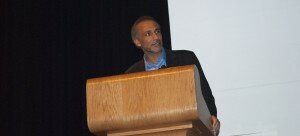 Minneapolis: Renowned Muslim Scholar, Prof. Tariq Ramadan’s anticipated visit to the Twin Cities was a huge success. Dr. Ramadan, Professor of Contemporary Islamic Studies at Oxford University (Oriental Institute, St. Anthony’s College), provided inspirational insights for people of diverse backgrounds to work together for the common welfare.
Minneapolis: Renowned Muslim Scholar, Prof. Tariq Ramadan’s anticipated visit to the Twin Cities was a huge success. Dr. Ramadan, Professor of Contemporary Islamic Studies at Oxford University (Oriental Institute, St. Anthony’s College), provided inspirational insights for people of diverse backgrounds to work together for the common welfare.
On December 23rd, Minnesotans of all walks of life braved the unusual December snow and cold, to a packed event attended by nearly one thousand people at St. Paul Central High School. The theme of the speech was, “Co-Existence: Contributing to the Common Good while Maintaining Our Values.” There was also a breakfast dialogue the following morning at Kelly Inn, St. Paul in which the esteemed Professor answered questions.
It was an amazing spectacle to see the audience’s keen passion and “quest for meaning” in an often confusing and contradictory world.
Prof. Ramadan reminded Muslim immigrants to overcome ethnic and cultural divisions and learn from history by reconciling heart and body. He urged the new wave of Somali immigrants to not make the mistakes of earlier immigrants who wasted so much time with the going back home syndrome. The Professor made it clear that the challenges confronting co-existence are huge but voices of reason must speak up loud and clear.
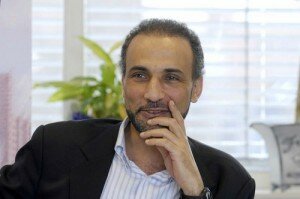
Prof. Tariq Ramadan
He emphasized that the United States is witnessing more of what Western Europe went through in Anti-Muslim sentiments. The TEA Party movement and Stop the Islamization of America rallies are trends that must not be taken lightly. The need for Muslims to be engaged in contemporary issues is more important than ever before.
The lecture was solidly based on Islamic principles of justice, peace, tolerance, humility, and respect. It highlighted the “Seven Cs” methodology that Prof. Ramadan has developed for Muslims in the Western world to get involved and to matter in their communities.
1. Confidence: Muslims should overcome the identity struggles through education and self-knowledge. This awareness should develop a composed Muslim who is at peace with himself and others. Operating from a deficit model would not lead to being taken seriously and Muslims cannot afford to be in that weak position.
2. Consistency: Muslims should be witnesses (shahid plural shuhadd) to the message of Islam. Muslims should also be open to self-examination and criticism to improve the conditions on the ground. They should also have the courage to stand for what they believe.
3. Contribution: Muslims must reconcile their physical, mental, spiritual, and social being to be of added value to their communities. They must serve everyone – Muslim or otherwise with humility. This will help in overcoming the distracting “us” vs. “them” divide. A more inclusive “we” should be used in the discourse. Muslims excelling in the different fields with patriotism would help integration in positive ways.
4. Creativity: Dr. Ramadan reminded the audience that Muslims could not convincingly use pictures of the accomplishments of Islamic Civilization to argue for our place in history. Rather, we should develop creativity and risk-taking spirit. We must engage in the study of history, religion, philosophy, arts, ethics, etc with vigor and renewal.
5. Communication: Prof. Ramadan is acutely aware of the dangers arising from misunderstandings and misconceptions in contemporary dialogue. He therefore calls for developing common terminology and defining concepts with empathy. Communication is a two-way process and there must be keen listening on all sides.
6. Contestation: Muslims should be the first to oppose injustice and oppression anywhere in the world. The audience was reminded that they should display courage and let their voices be heard on local and international issues. Muslim immigrants in the West are in a good position to be bridge builders between their homelands and chosen lands.
7. Compassion: This is a very important Attribute of Allah and His Messenger. A Muslim must therefore display empathy, understanding, and forgiveness towards oneself and others.
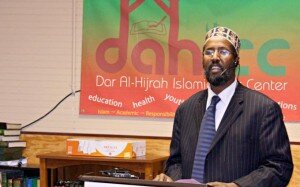
Dr. Abdisalam Adam, Board Member, Islamic Civic Society of America and Dar Al-Hijrah Mosque, Minneapolis
Finally, Prof. Tariq Ramadan signed some of his books for the audience, including: What I Believe; Radical Reform, Islamic Ethics, and Liberation; In the Footsteps of the Prophet: Lessons from the Life of Muhammad; and The Quest for Meaning: Developing a Philosophy of Pluralism.
May Allah, (Exalted and Mighty) keep us steadfast in Islam and make us true messengers of our Faith.
Please, note that a DVD of the lecture could be obtained through
or phone: (612) 227-8374.
By Dr. Abdisalam Adam, Board Member, Islamic Civic Society of America and Dar Al-Hijrah Mosque, Minneapolis
Photos By Mashriq Magazine

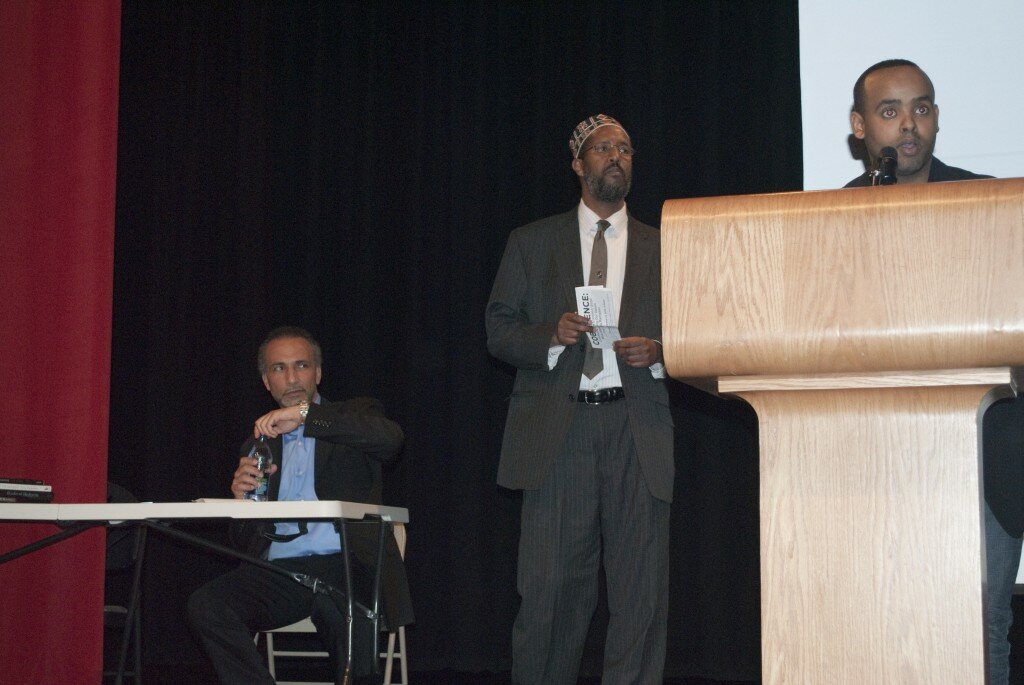
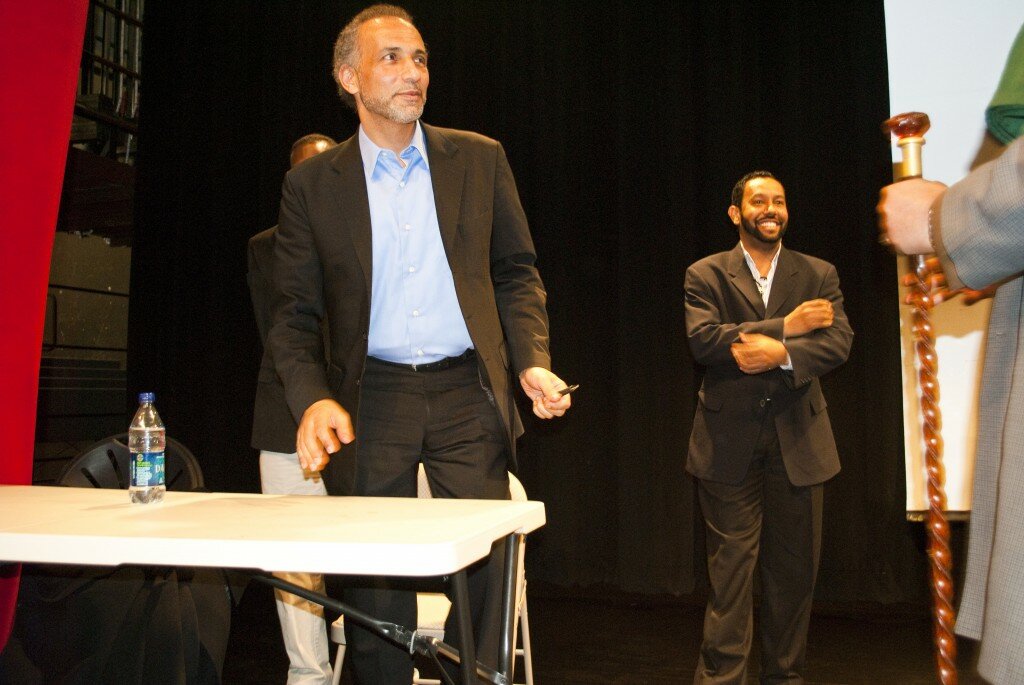

Comments
comments
 Calendar
Calendar






































